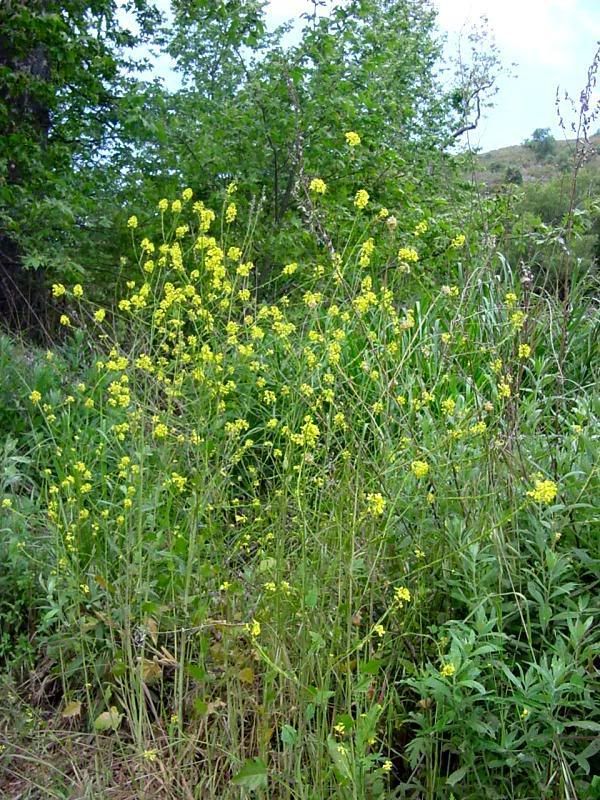That's what I had planned, at least. Unfortunately for me, it was 94 degrees and high noon on a sunny day. Further complicating my endeavor was dehydration from an inadequate amount of water on my person (and a bout of heavy drinking the night before), and lack of sunscreen. Within 20 minutes I was wheezing, sweating, sunburnt, and deafened by the sound of blood pounding through my temples. As I climbed to the peak of the park, I had to avert my attention from all of the dizzying city views, gloriously bronzed beefcake, and unleashed dogs and redirect all energy toward the most pressing task at hand: survival.
Now that the temperatures have cooled and I've been a few more times and my heart is more accustomed to inclined terrain, I've been indulging in some of the natural wonders of the park. One plant in particular caught my eye: a tall, shrubby weed with yellow flowers. Upon closer inspection, I realized that this darling little plant is black mustard, the same thing that keeps growing defiantly in my front yard, despite constant weeding by my neighbors.
I don't believe in weeding. I figure, if the sucker can triumph over all of the elements working against its survival and access enough nutrients to grow, then let it grow. Who am I to get in its way? (Of course, I realize that this same attitude will someday lead to a reputation among youth as the crazy-old-lady who lives in the creepy house with the overgrown yard.)
So I let it grow. It looked kind of odd among the other plants, but I was into that. It was a renegade; a Bickle, a Bjork, a Bourdain.And then one day I came home, and it was gone.
I know my neighbor ripped it out. I do not begrudge him for it. He's only home once a week, on Saturdays, and he spends the entire day tending to his own lawn, so if my black mustard is ruining his ambience, I'll let him have it.
But aside from looking a little peculiar, is it really all that bad?
Consider:
- Black mustard seeds are commonly used in Indian cuisine, particularly curry
- In Eastern Europe, ground black mustard seeds are mixed with honey to create a cough suppressant
FYI:
- Black mustard is native to the southern Mediterranean region of Europe
- The plant is rumored to have been introduced to Southern California by the Franciscan Padres "who scattered the seed along the Camino Real to mark its route."

Via

1 comment:
What's your neighbor's address? I'm going to send him a packet of black mustard seeds in the mail.
Post a Comment